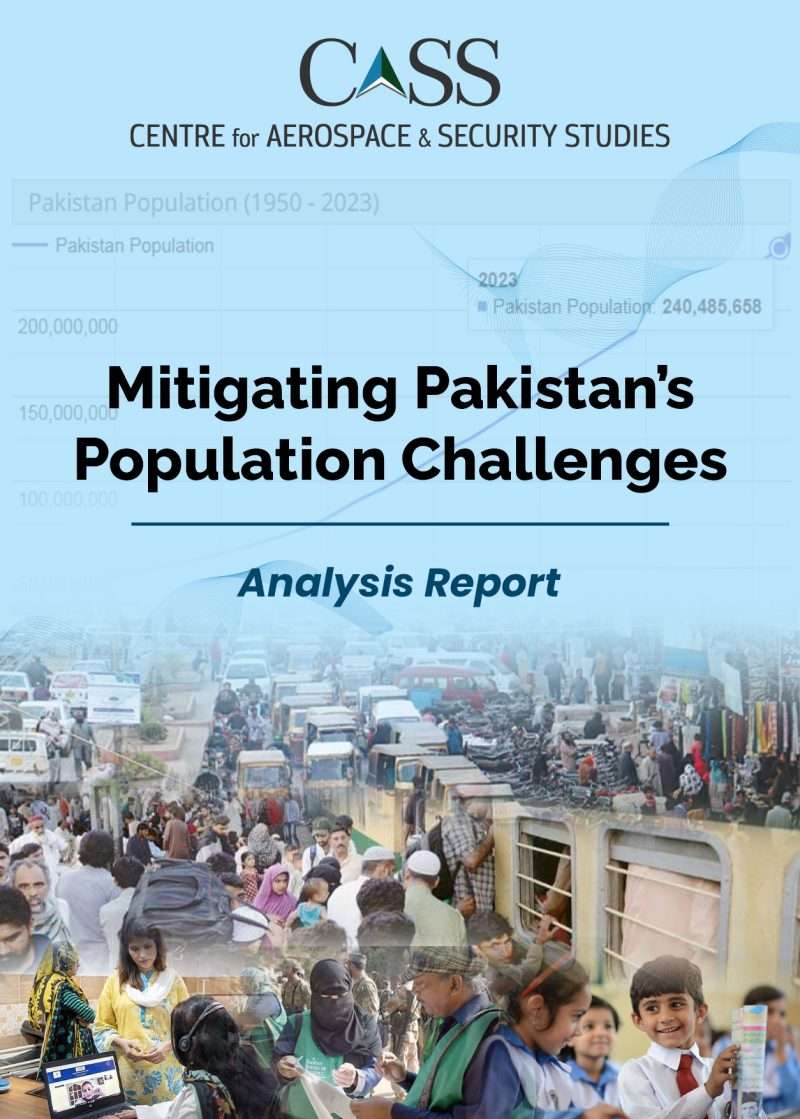Water, Education, Economy and Population (WEEP) are critical issues that have far-reaching effects on any country. Each element of WEEP has an over-arching impact on every stratum of society which in turn influences the security of a state. These elements determine the quality of life of the nation, that’s why all of their parameters must be monitored continuously by concerned stakeholders. Inadequacies in any of these can be detrimental to the National Security of a state. Unfortunately, Pakistan is confronted with acute challenges in each domain of WEEP. While the National Security Policy 2022, considered to be ‘citizen centric’, has laid enough emphasis on human security, the implementation of policies already formulated for Water, Education, Economy and Population remain wanting just like the policy-to-implementation gaps observed in other governmental responsibilities.
Given the interconnected nature of these issues, the Centre for Aerospace & Security Studies (CASS), Islamabad, plans to hold brainstorming sessions and seminars on each subject of WEEP and further examine their nuances. In this context CASS organised the first seminar in this series in October 2023, titled ‘Mitigating Pakistan’s Population Challenges’.
The best growth potential exhibited by Pakistan since its independence is in population. From 32 million at independence (in 1947), Pakistan’s population stands at 250 million in 2023. This represents almost eight times growth over a period of 76 years. It is estimated that Pakistan would hit the 400 million population mark by 2050 with the current fertility rate; it could be 266 million with a strict family planning program; but, would still be 342 million with moderate planning.
High population growth, rapid urbanisation and inaccurate census leave little margin for planning by the stakeholders, but it is unfortunate that the same stakeholders are responsible for poor policies and their implementation. A country that was about to become self-sufficient in food in the early 1980s, has a food insecurity issue today due to increased population. A crucial aspect deserving attention is the significant contributions made by women to Pakistani society. While they possess a genuine aspiration to be a potent workforce, women confront societal challenges not just globally, but especially in Pakistan.
To speak on this important but mostly neglected issue, CASS invited Senator Dr Sania Nishtar and Ms Samia Liaquat Ali Khan to share their expert views. Dr Nishtar deliberated upon, ‘The Population Dynamics and Socioeconomic Impacts,’ while Ms Khan focused on ‘Gender and Population Dynamics.’




